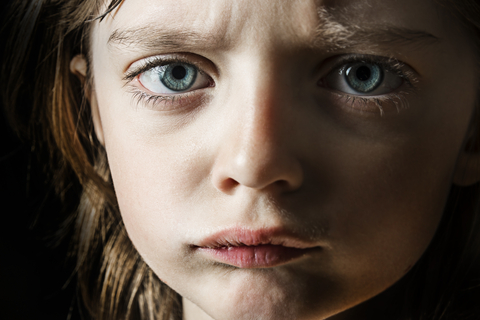by: Dr. Craig A. Maxwell
It is estimated that over 2.7 million children in the United States struggle with some sort of behavioral problem. Disruptive behaviors, aggressive tendencies, anxious behaviors such as nail biting, and self-destructive behaviors such as hitting, hair-pulling, and head-banging are common ways children act out.
Children who exhibit these behavior problems often have difficulty in family and peer social situations. Frustrated parents routinely turn to prescription drugs and while they may temporarily mitigate the behaviors, they do not address the underlying cause.
Oftentimes, tantrums and meltdowns are a result of a combination of conditional causes and environmental factors. Once these factors are understood and addressed, child behavior problems often resolve themselves without the need for medication.
Conditional Causes of Child Behavior Problems
- Inconsistent or Contradictory Parenting Style
Children need structure, discipline, and consistency in order to understand what’s expected of them and how to behave. For example, if a child acts out and the parent says there will be consequences if the behavior continues, those consequences must be followed through. If not, the child becomes confused and distrustful.
Sometimes parents accidentally reward unacceptable behaviors. Their child may be acting out in the grocery store and, to save face, the parent may give the child whatever he or she is asking for in order to stop the behavior. This is only a temporary solution and, instead of discouraging the action, makes it much more likely to recur.
- Family or Marital Problems
Children are very sensitive to their environment and can be upset or confused by a tense family environment. Fighting and lack of affection in a family can be internalized by a young child and may emerge at other times in the form of behavior problems.
- Child Abuse or Neglect
It goes without saying that if a child is abused or neglected, they are likely to exhibit behavior problems.
- Overindulgence
We live in a society that is a bit obsessed with the latest and greatest gadget, gizmo, and fashion. Children who are given everything they ask for and have things done for them will have a very difficult time practicing self-discipline.
- Injury or Chronic Illness
If a child receives a serious injury that requires surgery or a long hospital stay or is he is living with a chronic illness, it could negatively impact his behavior.
Environmental Factors That Cause Child Behavioral Problems
Conditional factors aren’t always the cause of child behavioral problems. Even with children whose home situations are completely ideal, environmental factors can still contribute to behavioral problems.
Let’s take a closer look at them in detail:
Pesticides and Insecticides
- Organophosphate Pesticides
Pyrethroids are synthetic chemicals derived from natural chemicals found in chrysanthemums. It is estimated that over 3,500 products contain these dangerous organophosphate pesticides. According to a Quebec study published by Scientific American these insecticides can contribute to the development of behavior problems in children.
The study indicated that children who were exposed to pyrethroids in the womb were likely to have lower development scores. Another study showed that one hundred and nineteen children who met the diagnostic criteria for ADHD showed higher urinary dialkyl phosphate concentrations, especially dimethyl alkylphosphate (DMAP) concentrations.
Pyrethroids can be found in bug spray, flea and tick creams, dog collars, dog shampoo, and bug bombs. Furthermore, it is estimated that 70% of the insecticides currently in use in the United States are OP pesticides. This means a total of approximately 90 million pounds of pesticides are dumped into the environment each year.
Environmental Toxins
The everyday chemicals in your environment may also be contributing to the unusual behaviors your child is exhibiting.
- Parabens
Parabens are pharmaceutical-grade compounds used as preservatives in cosmetics, toothpaste, cleaning products, and food. These compounds have been linked to the development of thyroid problems, which can, in turn, lead to behavioral problems in children. Adults and children with thyroid disease often exhibit symptoms of anxiety and depression.
- Phthalates
Phthalates (pronounced THAL-ates) are synthetic plasticizers found in nail polish, hair spray, wood finishers, vinyl flooring, and PVC shower curtains. Studies have shown that fetal exposure to phthalates has been associated with behavior problems and decreased mental ability.
- BPA
Bisphenol A (BPA) is an endocrine-disrupting chemical used in water and soda bottles, plastic food containers, and dental sealants. The Center for Environmental Research and Children’s Health published a study linking pre-birth and early life exposure to BPA to hyperactivity disorders.
- Xylene
Xylene is a highly-flammable chemical compound often found in household aerosol air fresheners. Even short-term exposure has been linked to behavioral changes and ADHD-like symptoms in both children and adults.
To reduce your exposure to these and other harmful chemical compounds, choose holistic, natural cleaning products, laundry detergent, and cosmetics. For example, castile soap is an olive oil based soap that can be used as a shampoo, body wash, shaving medium, and laundry detergent.
Dietary Factors
Your child eats three meals a day and each of them could be contributing to their behavioral problems.
- Food Additives
The Standard American Diet (SAD) is filled with neurotoxic additives that have been linked to the development of child behavior problems. Clinical research has shown that food dyes, aspartame, and MSG have a strong impact on the brain and nervous system and can cause the symptoms of ADHD and oppositional defiant disorder. Several of my patients have noticed a marked improvement in their child’s behavior simply by slowly weaning their child off processed foods.
- Gluten Intolerance
Gluten is a protein found in wheat, barley, and rye products. It is estimated that 1 in every 100 people are very intolerant to this protein. Many more have varying degrees of sensitivity. Symptoms include chronic digestive upset, muscle aches, chronic sinusitis, joint pain, unusual blood counts, mood swings, and learning disabilities. Completely removing all traces of gluten from your child’s diet for a period of 6-8 weeks may do wonders to improve his or her behavior.
- Poor Digestion
A malfunctioning digestive system can have a strong impact on your child’s emotional health and well-being. The enteric nervous system, also known as the “second brain,” is responsible for communicating information from the gut to the brain. A low probiotic count, sluggish digestion, and low stomach acid (hypochlorhydria) can interfere with this communication and cause the development of psychiatric symptoms.
This is why I recommend all children with behavioral problems be treated with a professional-grade children’s probiotic supplement.
- Nutrient Deficiencies
A junk-food diet, low probiotic count, hypochlorhydria, and gastrointestinal disorders can cause chronic nutritional deficiencies that may cause unusual behavior in your child. A deficiency in vitamin D3, magnesium, zinc, vitamin E, and omega 3 fatty acids can all contribute to irritability, depression, mood swings, and even mania and psychosis.
It can be both physically and emotionally draining to handle a child who is constantly acting out. Child behavioral problems do not automatically mean you need to place your child on psychiatric drugs. Discovering the cause of your child’s unusual behavior is your first step to healing, treating, and correcting it at home.
Resources:








